The Physiology of Physical Training
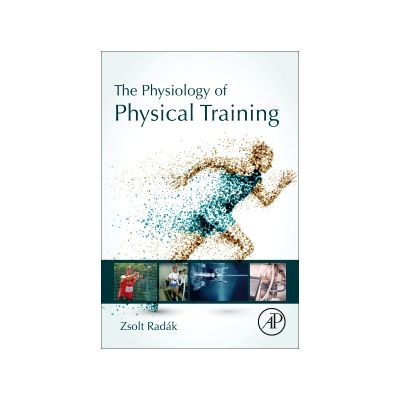
DESCRIERE
- Describes exercise-induced adaptation, from the cell to the whole body
- Demonstrates practical applications of exercise for injury, disease prevention and improved physical performance
- Fully integrates the knowledge of molecular exercise physiology and training methods
Table of Contents
1 Basic cellular functions, cellular adaptation, and metabolism
1. 1 Cell and organelles
1. 2 Cellular adaptation
1. 3 Metabolic processes
1. 4 „R” Extra
Summary
Test questions
Bibliography
2 Skeletal muscle, function, muscle fiber types
2. 1 Muscle contraction
2. 1. 1 Types of contractions
2. 2 Types of muscle fibers
2. 3 Tendons and connective tissue
2. 4 Skeletal muscles and aging
2. 5 „R” Extra
2. 5. 1 Fiber type assessment
2. 5. 2 Molecular markers in skeletal muscle
Summary
Test questions
Bibliography
3 Adaptation, phenotypic adaptation, fatigue, overtraining
3. 1 Homeostasis and adaptation
3. 2 Fatigue
3. 2. 1 Central fatigue, nervous system fatigue
3. 2. 2 Peripheral fatigue, muscle fatigue
3. 3 Muscle soreness and overtrainin
3. 3. 1 Muscle soreness
3. 3. 2 Overtraining
3. 4 Regeneration and resting
3. 5 Principals of exercise training
3. 6 Acclimatization
3. 7 „R” Extra
Summary
Test questions
Bibliography
4 Fundamentals of strength training
4. 1 Force generation and adaptation in the sarcomeres
4. 2 Types of muscle contraction and force generation
4. 3 Motor units and force generation
4. 4 Synchronization of motor units and force generation
4. 5 Muscle hypertrophy
4. 6 Methodology of strength training
4. 6. 1 Maximal strength training
4. 6. 2 Explosive strength
4. 6. 3 Strength endurance training
4. 6. 4 Training for cross-sectional area growth
4. 6. 5 Neuromuscular coordination training
4. 6. 6 Occlusion training
4. 6. 7 Unstable surface training (proprioception training)
4. 7 „R” Extra
Summary
Test questions
Bibliography
5 Fundamentals of endurance training
5. 1 Heart as a main factor in endurance performance
5. 2 Cardiovascular system as a determining factor of endurance performance
5. 2. 1 Blood as oxygen carrier and a determining factor of performance
5. 2. 2 Arterial- venous concentration difference of oxygen (A-V O2 difference): efficiency
5. 2. 3 Peripheral blood supply, vascularization as one of the main factor determining VO2max
5. 3 Mitochondrial content and enzymatic activity as one of the main factor determining VO2max
5. 4 Effect of metabolic processes on endurance
5. 5 Lactate threshold
5. 6 Endurance training methods
5. 6. 1 Aerobic endurance training methods
5. 6. 2 Anaerobic endurance training methods
5. 6. 3 High-altitude training
5. 7 R Extra
Summary
Test questions
Bibliography
6 Speed as complex conditional ability
6. 1 Forms of speed
6. 1. 1 Reaction time
6. 1. 2 Movement speed
6. 1. 3 Acceleration ability
6. 1. 4 Maximal locomotory speed
6. 1. 5 Braking ability
6. 1. 6 Decision speed
6. 1. 7 Learning speed
6. 2 Explosive training
6. 3 „R” Extra
Summary
Test questions
Bibliography
7 Fundamentals of joint flexibility
7. 1 Joint flexibility
7. 2 Stretchiness of muscles and tendons
7. 3 Proprioceptive neuromuscular facilitation
7. 4 Additional limiting factors of joint flexibility
7. 5 „R” Extra
Summary
Test questions
Bibliography
8 Diet and sport
8. 1 Diet and metabolism
8. 2 Diet and aerobic endurance
8. 3 Diet and strength and speed
8. 4 Diet and weight-class sports
8. 5 Vitamins, minerals and sport performance
8. 6 „R” Extra
Summary
Test questions
Bibliography
9 Physical training and prevention
9. 1 VO2max and cardiovascular and heart diseases
9. 2 Does high VO2max decreases the incidence of cancer?
9. 3 VO2max and neurodegeneration
9. 4 Metabolic syndrome and type 2 diabetes
9. 5 „R” Extra
Summary
Test questions
Bibliography
10 Physical training and aging
10. 1 Introduction
10. 2 Hypothetic models of aging
10. 3 Physical training and free radical theory of aging
10. 4 Physical training and aging of the central nervous system
10. 5 Physical training and cardiovascular aging
10. 6 Physical training and age-related alterations of bones and muscles
10. 7 „R” Extra
Summary
Test questions
Bibliography
11 Sport genetics
11. 1 Epigenetic modifications
11. 2 Genetics and sport
11. 3 „R” Extra
Summary
Test questions
Bibliography
Categorii de carte
-Comandă specială
-Edituri
-Promo
-Publicaţii Callisto
-Cărţi noi
-- 264,60 leiPRP: 294,00 lei
- 525,00 lei
- 604,80 leiPRP: 672,00 lei
Promoţii
-- 147,00 leiPRP: 210,00 lei
- 264,60 leiPRP: 294,00 lei
- 374,85 leiPRP: 441,00 lei


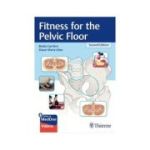
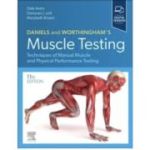
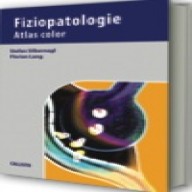


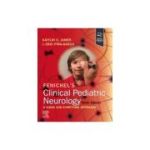

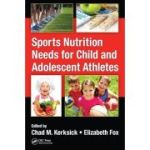

REVIEW-URI